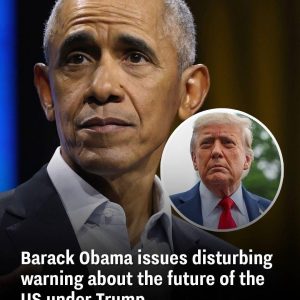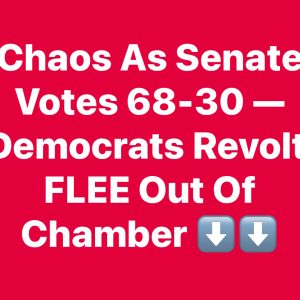The Resilience of Democratic Institutions: Navigating Political Tensions in Modern America
Contemporary American political discourse has increasingly focused on fundamental questions about the health and durability of democratic institutions. These discussions reflect deeper concerns about how democratic systems adapt to changing political environments while maintaining their core principles and effectiveness.
Understanding Democratic Frameworks
Democratic governance relies on a complex web of institutions, norms, and practices that have evolved over centuries. The American system combines formal constitutional structures with informal traditions that together create the framework for representative government. Understanding how these elements interact provides insight into both the strengths and vulnerabilities of democratic systems.
The separation of powers among executive, legislative, and judicial branches represents one of the foundational elements of American democracy. This system was designed to prevent the concentration of authority in any single institution while ensuring that government remains accountable to the people. The effectiveness of these checks and balances depends not only on constitutional provisions but also on the willingness of political actors to respect institutional boundaries.
Federalism adds another layer of complexity to American democratic governance, distributing authority between national and state governments. This division of power creates multiple venues for political participation and policy experimentation while also creating potential tensions between different levels of government. The balance between federal and state authority has been a source of ongoing political debate throughout American history.
Electoral systems form the foundation of democratic legitimacy, providing mechanisms for peaceful transfers of power and popular input into government decisions. The integrity of these systems depends on public confidence in their fairness and accuracy, which can be influenced by factors including voting access, election administration, and post-election processes.
Civil liberties and political rights create the space for democratic participation by protecting individual freedoms and ensuring that all citizens can engage meaningfully in political processes. These protections include freedom of speech, assembly, and the press, as well as due process rights and equal protection under the law.
Historical Perspectives on Democratic Challenges
American democracy has faced significant challenges throughout its history, from the Civil War to the Great Depression to various social movements that have tested institutional capacity and popular commitment to democratic principles. Each of these periods has required adaptations and reforms to maintain democratic legitimacy while addressing changing circumstances.
The Civil War represented perhaps the greatest existential threat to American democratic institutions, challenging fundamental questions about the nature of the union and the relationship between federal and state authority. The resolution of this conflict through constitutional amendments and reconstruction efforts demonstrated both the resilience of democratic institutions and their capacity for reform.
The Progressive Era brought significant reforms to democratic institutions, including direct election of senators, women’s suffrage, and various measures to increase government accountability and responsiveness. These changes reflected growing demands for more inclusive and effective democratic governance in response to industrialization and social change.
The New Deal period saw substantial expansion of federal government authority and the creation of new institutions designed to address economic challenges and social needs. These developments tested traditional understandings of the proper scope of government while demonstrating the capacity of democratic systems to adapt to new circumstances.
The civil rights movement challenged institutional practices that excluded African Americans from full political participation, leading to landmark legislation and constitutional interpretations that expanded democratic inclusion. This period illustrated how social movements can drive institutional change within democratic frameworks.
More recent challenges have included questions about campaign finance, political polarization, media fragmentation, and the role of technology in political processes. Each of these issues raises important questions about how democratic institutions can maintain effectiveness and legitimacy in changing environments.
Contemporary Political Discourse Patterns
Modern American political discourse has become increasingly characterized by polarization, with political actors and citizens sorted into relatively distinct ideological camps that often view political opponents as fundamental threats rather than legitimate competitors. This polarization affects how political institutions function and how citizens engage with democratic processes.
Social media and digital communication platforms have transformed how political information spreads and how citizens engage with political issues. These technologies have created new opportunities for political participation while also creating challenges related to misinformation, echo chambers, and the rapid spread of unverified claims.
The role of traditional media institutions has evolved significantly, with declining trust in mainstream journalism among some segments of the population and the proliferation of alternative information sources. These changes affect how citizens receive political information and form opinions about government policies and political leaders.
Political messaging has become increasingly sophisticated, with extensive use of polling, focus groups, and data analytics to craft appeals to specific audience segments. This development has implications for how political leaders communicate with the public and how citizens understand complex policy issues.
The nationalization of political discourse has reduced the role of local issues and relationships in political decision-making, potentially weakening connections between representatives and constituents while increasing the influence of national political narratives.
Institutional Stress Points and Adaptations
Democratic institutions face various forms of stress that test their capacity to maintain legitimacy and effectiveness. Understanding these stress points helps identify areas where reforms or adaptations might be necessary to preserve democratic governance.
Constitutional interpretation disputes can create tensions between different branches of government and different political factions. The Supreme Court’s role in resolving these disputes makes it a focal point for broader political conflicts about the direction of American society and government.
Legislative gridlock can prevent government from addressing pressing policy challenges, potentially undermining public confidence in democratic institutions. The causes of gridlock include partisan polarization, institutional rules that require supermajorities for action, and strategic considerations that may make political leaders reluctant to compromise.
Executive power questions arise periodically as presidents test the boundaries of their authority in response to various challenges. These situations require careful balance between effective governance and respect for constitutional limitations on executive authority.
Electoral integrity concerns can undermine public confidence in democratic processes, particularly when there are disputes about voting procedures, election administration, or the accuracy of results. Maintaining public trust in electoral systems requires ongoing attention to both the reality and perception of fairness.
Interest group influence and campaign finance issues raise questions about whether democratic institutions adequately represent the interests of ordinary citizens or whether they have become dominated by wealthy individuals and organizations with disproportionate political influence.
The Role of Political Leadership
Political leadership plays a crucial role in maintaining the health of democratic institutions through both formal actions and informal modeling of democratic norms. Leaders who respect institutional boundaries and engage constructively with political opponents help reinforce democratic practices, while those who challenge these norms can contribute to institutional erosion.
Presidential leadership carries particular significance because of the visibility and influence of the office. Presidents who demonstrate respect for constitutional limitations, engage constructively with Congress, and maintain civil discourse with political opponents help model appropriate democratic behavior for other political actors and for citizens.
Congressional leadership also affects institutional health through decisions about procedural rules, committee operations, and inter-party cooperation. Leaders who prioritize institutional integrity over short-term political advantages help maintain the effectiveness of legislative processes.
Judicial leadership involves maintaining independence from political pressure while demonstrating respect for constitutional principles and legal precedent. Judges who are perceived as fair and impartial help maintain public confidence in the rule of law.
State and local political leaders play important roles in maintaining democratic practices at the grassroots level, where many citizens have their most direct experiences with government. These leaders can help build public confidence in democratic institutions through effective and accountable governance.
Civil Society and Democratic Participation
Civil society organizations play essential roles in democratic systems by providing venues for citizen engagement, advocating for various policy positions, and serving as intermediaries between citizens and government institutions. The health of civil society affects the overall vitality of democratic governance.
Nonprofit organizations, advocacy groups, and community associations create opportunities for citizens to participate in political processes beyond voting. These organizations help educate citizens about policy issues, mobilize political participation, and provide channels for influencing government decisions.
Professional associations, labor unions, and business organizations represent the interests of various economic groups in political processes. The balance of influence among these different groups affects how well democratic institutions represent diverse economic interests.
Religious institutions often play important roles in political discourse and citizen engagement, though the appropriate relationship between religious organizations and political processes remains a subject of ongoing debate in pluralistic societies.
Educational institutions contribute to democratic governance by providing citizens with knowledge and skills necessary for effective political participation. The quality and accessibility of civic education affects the capacity of citizens to engage meaningfully with democratic processes.
Media organizations serve crucial functions in democratic systems by providing information about government activities, investigating potential abuses of power, and facilitating public debate about policy issues. The independence and credibility of media institutions affects their capacity to fulfill these democratic functions.
Reform Proposals and Future Directions
Various reform proposals have been advanced to address perceived weaknesses in American democratic institutions while preserving their fundamental characteristics. These proposals range from constitutional amendments to procedural changes to new technologies that might enhance democratic participation.
Electoral reforms include proposals for campaign finance changes, redistricting reform, alternative voting methods, and modifications to the Electoral College system. Each of these approaches aims to make electoral systems more representative, competitive, or responsive to citizen preferences.
Legislative reforms focus on procedural rules that might reduce gridlock while maintaining opportunities for minority party input. These proposals include changes to filibuster rules, committee structures, and legislative scheduling that might improve congressional effectiveness.
Executive accountability measures include proposals for enhanced congressional oversight, transparency requirements, and limitations on presidential authority in certain areas. These reforms aim to maintain effective executive leadership while preventing potential abuses of power.
Judicial reforms address concerns about court politicization through proposals for term limits, court expansion, or changes to judicial selection processes. These reforms seek to maintain judicial independence while ensuring appropriate accountability.
Technology applications offer potential opportunities to enhance democratic participation through online voting, digital town halls, and other innovations that might make political engagement more accessible and convenient for citizens.
International Perspectives and Comparisons
Examining how other democratic societies address similar challenges provides valuable context for understanding American experiences and potential reform options. Different democratic systems have evolved various approaches to common problems, offering lessons for institutional design and adaptation.
Parliamentary systems provide different models for organizing executive-legislative relations, potentially offering insights into alternatives to the American separation of powers system. These systems typically feature closer coordination between executive and legislative branches while maintaining democratic accountability.
Proportional representation electoral systems create different incentives for political parties and different patterns of coalition-building than the American first-past-the-post system. These alternatives may offer insights into how electoral rules affect political competition and representation.
Federal systems in other countries provide examples of different approaches to balancing national and subnational authority. These comparisons can inform debates about American federalism and the appropriate distribution of governmental powers.
Constitutional reform processes in other democracies offer examples of how societies can adapt their fundamental governing documents while maintaining democratic legitimacy. These experiences may provide insights into how constitutional change can occur within democratic frameworks.
Conclusion
The ongoing vitality of American democratic institutions depends on the continued commitment of political leaders and citizens to democratic principles and practices. While challenges to democratic governance are not new, each generation must work to maintain and adapt institutional arrangements to meet contemporary needs while preserving fundamental democratic values.
The resilience of democratic institutions ultimately depends on both formal constitutional structures and informal norms that govern political behavior. Maintaining this resilience requires ongoing attention to both institutional design and political culture, ensuring that democratic systems can respond effectively to changing circumstances while maintaining their core commitments to popular sovereignty, individual rights, and accountable government.
Future developments in technology, global politics, and social organization will likely create new challenges and opportunities for democratic governance. Successfully navigating these changes will require thoughtful adaptation of democratic institutions combined with renewed commitment to the principles that make democratic government both possible and desirable.
The health of American democracy depends not only on the actions of political elites but also on the engagement and vigilance of ordinary citizens who must ultimately hold their representatives accountable and participate actively in democratic processes. This shared responsibility for democratic governance represents both the greatest strength and the ongoing challenge of democratic systems.











